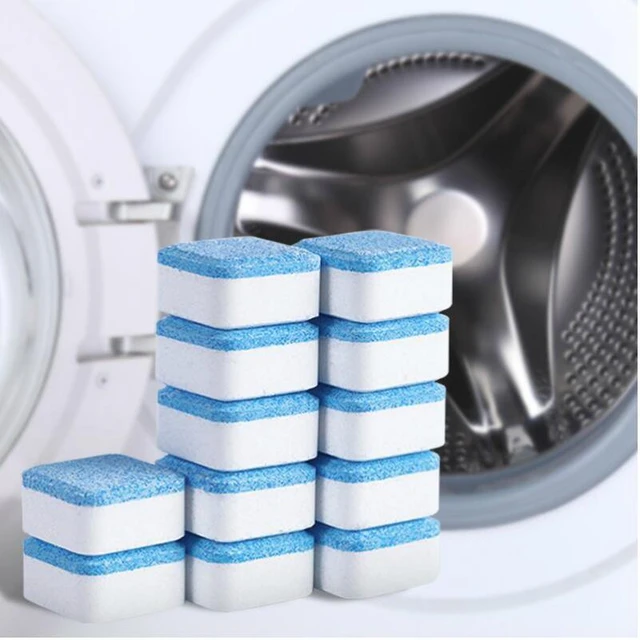Washing machines are essential household appliances that simplify our lives by taking care of our laundry needs. However, one common issue many homeowners face is the unpleasant odor emanating from their washing machines. Imagine going to load your favorite clothes only to be greeted by a foul smell that resembles sewage. If you’ve found yourself in this situation, don’t panic. This comprehensive guide will explore the reasons behind why your washing machine smells like sewage, the potential health implications, and various solutions to rectify the issue.
The Basics of Washing Machine Odors
Types of Odors
When it comes to washing machines, various odors can indicate different underlying issues. The most common smells include:
- Musty or Mildew Smell: Often caused by moisture and lack of ventilation.
- Burning or Chemical Smell: Usually linked to mechanical failures or overloaded machines.
- Sewage Smell: This can stem from bacteria, blockages, or drainage issues.
Among these, you may find that the sewage smell is particularly disturbing, making it hard to ignore when doing laundry.
How Odors Develop
Odors in washing machines develop due to several factors:
- Moisture Accumulation: Washing machines create a wet environment, making it a breeding ground for bacteria and mold.
- Old Detergent Residue: Using too much detergent can lead to residue buildup, which can ferment over time and produce odors.
- Blocked Filters or Hoses: Clogs can prevent proper drainage, causing stagnant water to develop smells.
Understanding these basics can help identify the root cause of that unpleasant sewage odor knowing what you’re dealing with makes finding a solution all the more straightforward.
Common Causes of Sewage Smell
1. Clogged Drainage
One of the primary reasons your washing machine smells like sewage is a clogged drainage system. When clogs occur, wastewater does not drain properly, leading to a buildup of stagnant water.
Symptoms of Clogged Drainage
- Water pooling at the bottom of the washer
- Slow drainage after a wash cycle
- Frequent error messages on the control panel
Fixing the Clog: To address this, first, unplug your machine to ensure safety. Next, check your machine’s drain hose for clogs or kinks, and clean any obstructions. If it leads to an external drain, investigate that area for possible blockages too.
2. Stagnant Water
Stagnant water is inevitable when a washing machine has drainage issues. This sluggish standing water creates an ideal environment for bacteria, leading to that rotten egg-like odor.
How to identify Stagnant Water
- An unusual smell when the lid is opened
- Water in the rubber seal
- Wetness in the drum after washing
Resolving Stagnation: Always ensure your washer is leveled to facilitate proper drainage. If stagnant water continues to be an issue, consider running a drain cleaner to dissolve buildup in the pipes—just remember to check compatibility with your washing machine model.
3. Bacteria and Mold Growth
Bacteria and mold thrive in damp, dark environments—an apt description of a closed washing machine. Residual moisture can lead to a strong sewage smell.
Identifying Mold Growth
- Visible mold in the rubber seals
- White, slimy residue in the drum
- Persistent foul odor, even after cleaning
Combatting Mold: You can run a hot cycle with vinegar mixed in or use a washing machine cleaner specifically designed for this purpose. Make sure to clean the rubber gaskets thoroughly, as they often harbor mold colonies.
4. Issues with the Drain Trap
The drain trap collects debris and buildup to prevent it from obstructing plumbing. When neglected, it can become blocked, causing odors to back up into the washer.
Signs of Drain Trap Problems
- Gurgling noises during the wash cycle
- Unpleasant smell that seems to fluctuate
- Visible build-up in your washing machine drain
Cleaning the Drain Trap: Most washers allow easy access to the drain trap; consult your user manual for specific directions. Once exposed, clean it thoroughly and inspect it for damages.
5. Faulty Drainage Pump
The drainage pump is crucial for expelling waste water from the washing machine. If this mechanism fails, you’ll experience standing water, leading to unpleasant smells.
Diagnosing Pump Issues
- Unusual noise during draining cycles
- Incomplete drainage
- Water leaking from the bottom of your washing machine
Repairing or Replacing the Pump: If you suspect a pump issue, it’s wise to consult a professional technician to evaluate if repair is necessary or if a replacement is warranted.
Preventative Measures to Avoid Odors
Regular Cleaning Schedule
Keeping your washing machine clean should be a priority. Regularly running a cycle with vinegar and baking soda can eliminate odors before they become serious issues.
Frequency Recommendations: Aim to do this cleaning every month or after every 20 loads to maintain optimal conditions.
Proper Detergent Usage
Avoid using too much detergent, as this can lead to buildup. Follow the manufacturer’s recommendations for detergent amounts based on your load size.
Wipe Down After Use
After each laundry session, wipe down the rubber seals and leave the door slightly ajar to promote airflow. This simple step can drastically reduce mildew and odor growth.
Check the Drainage System Regularly
Building a routine to check your machine’s drainage system will save you a lot of trouble in the future. Keep an eye out for any visible blockages or drainage issues that crop up.
Using a Washing Machine Cleaner
Occasional use of a specialized washing machine cleaner can help maintain cleanliness and odor-free operation. It’s a proactive measure that can help combat odor and residue buildup.
Health Implications of Neglecting Odors
Allergies and Respiratory Issues
Ignoring a sewage smell can lead to various health issues. Mold and bacteria, when inhaled or contacted, can cause allergic reactions and respiratory problems.
Skin Infections
Contaminated laundry is also a health risk. If laundry isn’t cleaned properly, you may expose yourself to bacteria from dirty clothing, which can lead to skin infections.
Potential for Infestations
A neglected washing machine might attract pests like roaches or rodents, seeking out damp, warm environments to inhabit.
Additional Maintenance Tips
Regular maintenance can go a long way in preventing an odor and ensuring your washing machine operates smoothly.
1. Use Baking Soda
Adding a cup of baking soda to your washing machine during cycles can help neutralize odors. Baking soda is a natural deodorizer and can help in alleviating the sewage smell.
2. Vinegar Rinse
After running a standard cycle with detergent, consider running another cycle with a cup of white vinegar. Vinegar can break down soap scum and remove odors effectively.
3. Monthly Cleanouts
Make it a habit to clean your washing machine each month. This could be a simple routine where you run a cleaning cycle or do special maintenance tasks such as checking the hose and filter.
 When to Call a Professional
When to Call a Professional
If you’ve tried everything and your washing machine still smells like sewage, it might be time to call a professional. They can conduct a more thorough diagnosis and may be able to uncover issues that are not visible to the untrained eye.
1. Internal Mechanics
Sometimes, problems can occur in the internal elements of the washing machine itself, including the pump or the internal lining, which can be hard to diagnose without professional help.
2. Plumbing Issues
If the issues stem from your home’s plumbing system rather than the washing machine, a plumber may be necessary to fix potential blockages or backups in the sewage lines.
Conclusion
In summary, dealing with a situation where your washing machine smells like sewage is not only unpleasant but can also present health risks if left unattended. By understanding the root causes, you can take steps to correct the problem effectively. Regular maintenance, recognizing signs of issues early on, and taking preventive measures can help ensure that your washing machine operates efficiently and odor-free. Remember, a little upkeep goes a long way towards keeping your washing appliance—and your laundry—fresh and clean. Implement these strategies to keep that sewage smell at bay and ensure your washing machine acts as the helpful tool it was designed to be.


